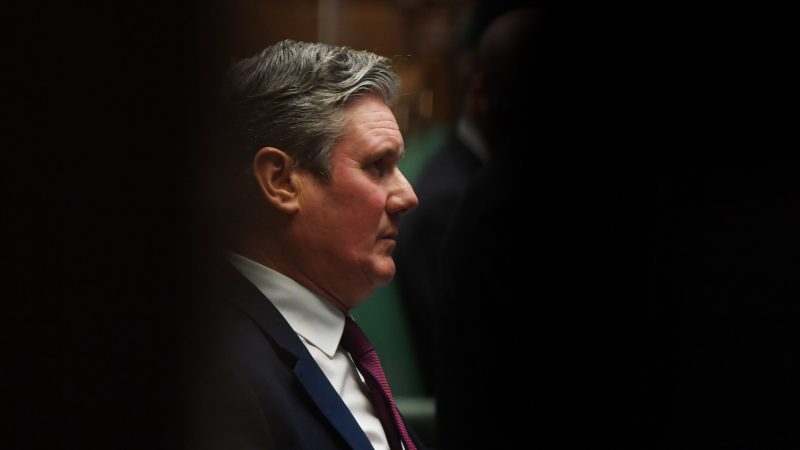
Keir Starmer has given an interview to the Daily Record on his tour this week of Scotland, in which he says two very significant things. The first is to rule out any deal with the SNP before or after a general election. The second is the claim that “the central issue will be if you want a Labour government, you have to vote Labour”. Let’s take each in turn.
Scotland is a major structural problem for Labour. Since 2015, when its Westminster return collapsed, the SNP has posed the Labour Party two issues. First, it all but eliminates the chance of a majority Labour government and second the presence of the SNP holds Labour back in England – recall the 2015 posters of Ed Miliband in the SNP leader’s pocket. Starmer is trying to shoot the SNP fox now: no deals at any time in anyway – and just vote Labour if you want a Labour government. At one level, of course, you would not expect him to say anything else. The problem is the no-deals position is not in his gift and the only-vote-Labour line simply isn’t true.
The backdrop to all this is Labour’s historically weak electoral position. The party needs a swing bigger than in 1945 or 1997 to achieve a majority of just one. The electoral and party system is now tilted so heavily against Labour that even if the 2019 result was reversed, with Labour enjoying a 43% share of the vote and the Conservatives only 32%, Labour still wouldn’t have a majority in parliament. Given this situation and the likely return of another block of 50 or so SNP MPs after the next election, Starmer will face – at best – a stark choice: deal with the SNP in some shape or form or go back to opposition benches and the wilderness again. To be clear, no one is talking about coalitions, but in such circumstances rejecting a confidence and supply deal is inconceivable. And everyone knows this.
Starmer’s current position is either demonstrably untenable or a cynical move in which he denies a deal now and then does one the other side of the election. The trouble with the later position, other than the moral one, is the former issue: if everyone knows that it is untenable not to rely on the SNP, the accusation that he will do a deal will stick regardless of what he says now. Just ask Miliband about 2015. Denying the problem doesn’t make it go away. Only dealing with the problem does. The Tories will say voting Labour will mean a ‘coalition of chaos’, the only way to avoid that charge is to show that collaboration can and does work.
The only solution is to say that the climate emergency and any post-Covid recovery demands a change of government – if that can’t be a Labour majority, it has to be a Labour-led government that works because Prime Minister Starmer can command the backing of the House because of the support of other parties. Discussion about a second independence referendum can come later. In which time the whole dynamic of UK politics will have changed. Labour by then should be putting in place proportional representation and radical federalism, and be busy rebuilding the social fabric of society while addressing the climate emergency. In which case the argument of independence is diminished.
Which takes us to the vote Labour to get a Labour government claim. In 80 seats, the Lib Dems are second to the Tories. And in scores of seats Labour success depends on Lib Dems and Greens voting Labour. If tactical campaigning and voting isn’t actively encouraged, then the Conservatives win again. We need electoral cooperation on the centre and centre-left of a scale bigger than 1997. But we are currently miles from that. Starmer and the Labour Party are going to have to accept that if they go for 100% of power, they are likely to get zero again. But if we go for 70% of what we want and the country needs, then we could get 100% of that.
We live in a two-party system, which is strongly now skewed in favour of the Tories – but in a multi-party reality. Playing hard ball is denying the reality that saw Labour lose in 2010, 2015, 2017 and 2019. Lose again and I’m not sure the country, the unions or the party will survive. Labour either embraces pluralism and a future negotiated with others or it’s a future that looks short and incredibly bleak.




More from LabourList
Scottish Parliament elections 2026: Full list of Labour candidates for Holyrood
‘As metro mayors gain power, Labour must tighten political accountability’
Letters to the Editor – week ending 22 February 2026